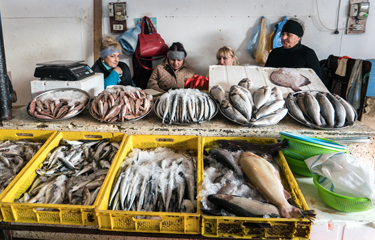After decades of increasing human pressures on Mediterranean and Black Sea marine ecosystems and fisheries resources, the overexploitation of the region’s fish stocks may finally be easing up, a new report from the General Fisheries Commission for the Mediterranean (GFCM) suggests.
According to the FAO statutory body’s latest biennial report, “The State of Mediterranean and Black Sea Fisheries,” or SoMFi 2020, while 75 percent of fish stocks remain subject to overfishing, this fell by more than 10 percent between 2014 and 2018. Exploitation ratios are also down by a similar proportion.
Taking into account newly assessed stocks, the number of fish stocks with high relative biomass has doubled since the last edition of SoMFi was published in 2018, it said.
While most of the stocks remain overexploited, GFCM confirmed that this is the first time in decades that it has been able to report some positive trends, with Mediterranean hake and Black Sea turbot among those stocks showing signs of recovery.
“Thanks to the commitment of GFCM members and experts to addressing existing challenges, for the first time we can say that some positive signals are finally emerging in the sector,” GFCM Executive Secretary Abdellah Srour said. “While we know there is a lot more work still to be done before the region’s fisheries are on a sustainable footing, we are pleased that we have begun to reverse some of the most worrying trends.”
The report further estimates the overall annual economic value of Mediterranean and Black Sea fisheries is USD 9.4 billion (EUR 7.7 billion), and that the industry provides some 225,000 onboard jobs.
While small-scale fisheries make up most of the industry – representing 83 percent of the region’s fishing vessels and 57 percent of the fishing-based jobs – their share of the region’s total catch is only 15 percent.
The small-scale fishers also generate less than 30 percent of total fisheries revenue.
GFCM members include the 23 contracting parties of Albania, Algeria, Bulgaria, Croatia, Cyprus, Egypt, European Union, France, Greece, Israel, Italy, Lebanon, Libya, Malta, Monaco, Montenegro, Morocco, Romania, Slovenia, Spain, Syria, Tunisia, and Turkey, as well as the five cooperating non-contracting parties of Bosnia and Herzegovina, Georgia, Jordan, Moldova, and Ukraine.
Photo courtesy of Claudia Amico/ General Fisheries Commission for the Mediterranean







